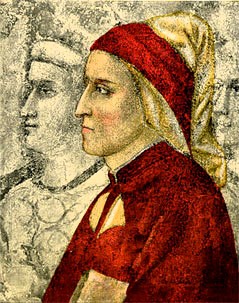"...the Imagination (or love, or sympathy, or any other sentiment) induces knowledge, and knowledge of an 'object' which is proper to it..."
Henry Corbin (1903-1978) was a scholar, philosopher and theologian. He was a champion of the transformative power of the Imagination and of the transcendent reality of the individual in a world threatened by totalitarianisms of all kinds. One of the 20th century’s most prolific scholars of Islamic mysticism, Corbin was Professor of Islam & Islamic Philosophy at the Sorbonne in Paris and at the University of Teheran. He was a major figure at the Eranos Conferences in Switzerland. He introduced the concept of the mundus imaginalis into contemporary thought. His work has provided a foundation for archetypal psychology as developed by James Hillman and influenced countless poets and artists worldwide. But Corbin’s central project was to provide a framework for understanding the unity of the religions of the Book: Judaism, Christianity and Islam. His great work Alone with the Alone: Creative Imagination in the Sufism of Ibn ‘Arabi is a classic initiatory text of visionary spirituality that transcends the tragic divisions among the three great monotheisms. Corbin’s life was devoted to the struggle to free the religious imagination from fundamentalisms of every kind. His work marks a watershed in our understanding of the religions of the West and makes a profound contribution to the study of the place of the imagination in human life.Search The Legacy of Henry Corbin: Over 800 Posts
Tuesday, January 3, 2012
On Dante
From Ron Slate's Review of A N Wilson's Dante in Love:
Wilson writes:
“From the beginning of Dante’s serious poetic career, there exists the bold idea that in the experience of loving Beatrice, he will discover not only what is generally meant by the term Love. He will discover that Love itself (the force, as he would conclude, which moves the sun and the other stars) is going to bring about great changes in his lifetime – changes to the Church, changes to the way that society is ordered – as well as changes in the relations between men and women. To this extent, Dante and Beatrice are to be seen as subversives, as revolutionaries, in the sphere of human or secular love …”
This sounds like Corbin's Dante to me.
Wilson writes:
“From the beginning of Dante’s serious poetic career, there exists the bold idea that in the experience of loving Beatrice, he will discover not only what is generally meant by the term Love. He will discover that Love itself (the force, as he would conclude, which moves the sun and the other stars) is going to bring about great changes in his lifetime – changes to the Church, changes to the way that society is ordered – as well as changes in the relations between men and women. To this extent, Dante and Beatrice are to be seen as subversives, as revolutionaries, in the sphere of human or secular love …”
This sounds like Corbin's Dante to me.
Subscribe to:
Post Comments (Atom)









No comments:
Post a Comment